NATO is making a significant strategic shift from expeditionary operations to a focus on collective defence, as the alliance continues to adapt to emerging threats in Europe.
At a recent press briefing during the NATO Defence Ministers’ meeting, a senior NATO official outlined this change in approach, emphasising the importance of readiness and speed in responding to potential large-scale conflicts.
The official explained that this transformation represents “the biggest reinforcement of our posture in a generation,” as NATO shifts its focus from operations abroad to the defence of member nations. “There’s a clear shift from expeditionary operations, which used to be dominant in the last decade, to focus on collective defence at readiness and at speed of relevance,” the official said.
This change in strategy comes as NATO faces renewed threats from both state and non-state actors, particularly in Europe, where the war in Ukraine has underscored the need for a more robust defence posture. NATO’s collective defence approach is focused on ensuring that member nations are prepared to respond quickly to any aggression, especially from adversaries such as Russia.
As part of this shift, NATO is also increasing its emphasis on ensuring that member states meet their commitments to collective defence, including providing the necessary resources and capabilities.
The official noted that the success of NATO’s new defence posture hinges on member nations’ ability to meet these requirements, stating, “In the end, it’s the nations’ primary responsibility to deliver on those targets and those objectives to provide the capabilities that we need in order to have a strong deterrence and defence posture.”
With NATO shifting its priorities towards collective defence, member nations will need to invest more heavily in ensuring that their forces are ready and capable of responding to threats at a moment’s notice.



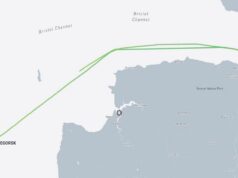
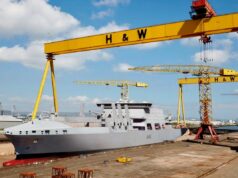
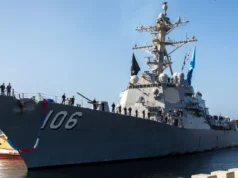
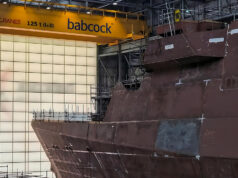
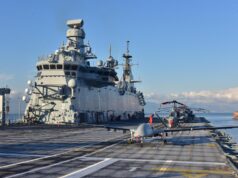
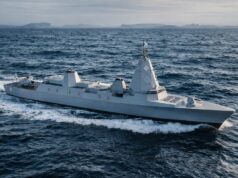
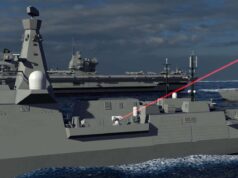
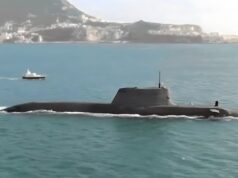
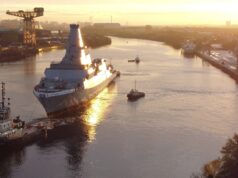
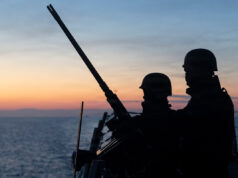

I take it the photo was chosen to illustrate what we don’t do any more seeing as it features one of the Albion class ships in the lead and they are both laid up in Devonport at the minute
Collective defence in the EuroAtlantic region was always at the heart of NATO. NATO’s expeditionary operations of recent years was a ‘bolt-on’.
The use of expeditionary capabilities in Iraq, Afghanistan didn’t achieve much. NATO was founded as a self defence organisation and is now re emphasizing that core role.
“Didn’t do much”? We hit every single objective and did it with our assets at the time. As someone who was there in our expeditionary forces, I can tell you that we delivered, took objectives and did it with a fraction of the forces the US deployed to their areas. Al Faw, is a case in point. Lose expeditionary capabilities and you lose your ability to enforce policy.
I suspect he should actually refer to the complete Fu$k up that the politicians made after so much was achieved by those that were part of the expeditionary forces.
I agree. It was all thrown away by the USA electing a bunch of inadequate Politicos.
Not getting out there enough is their problem. Like everywhere else we are now up against some bad actors who are showing us how vulnerable they now are; but the future is not bright as they may learn.
Long term Russia backed by China is the problem make no mistake. Russia has almost infinite resources but is now showing signs of employing a mercenary army to prevent their more valuable citizens being killed and maimed. How long before a North Korean Division is found in Ukraine? Within 2 years is my guess.
As someone who served in Afghanistan I would like to think we did some serious damage to AQ.
Yes, hopefully this will give us a bit of a kick up the arse to increase our munitions stockpile and our capability to surge munitions production at short notice.
The reality is we need both. Never either or. Being an island, amphibious is vital even to simply deploy across the channel or recover our forces or those of allies. We’ve cut way too far, for far too long. That should’ve stopped & forces rebuilt since UKR at the very latest.